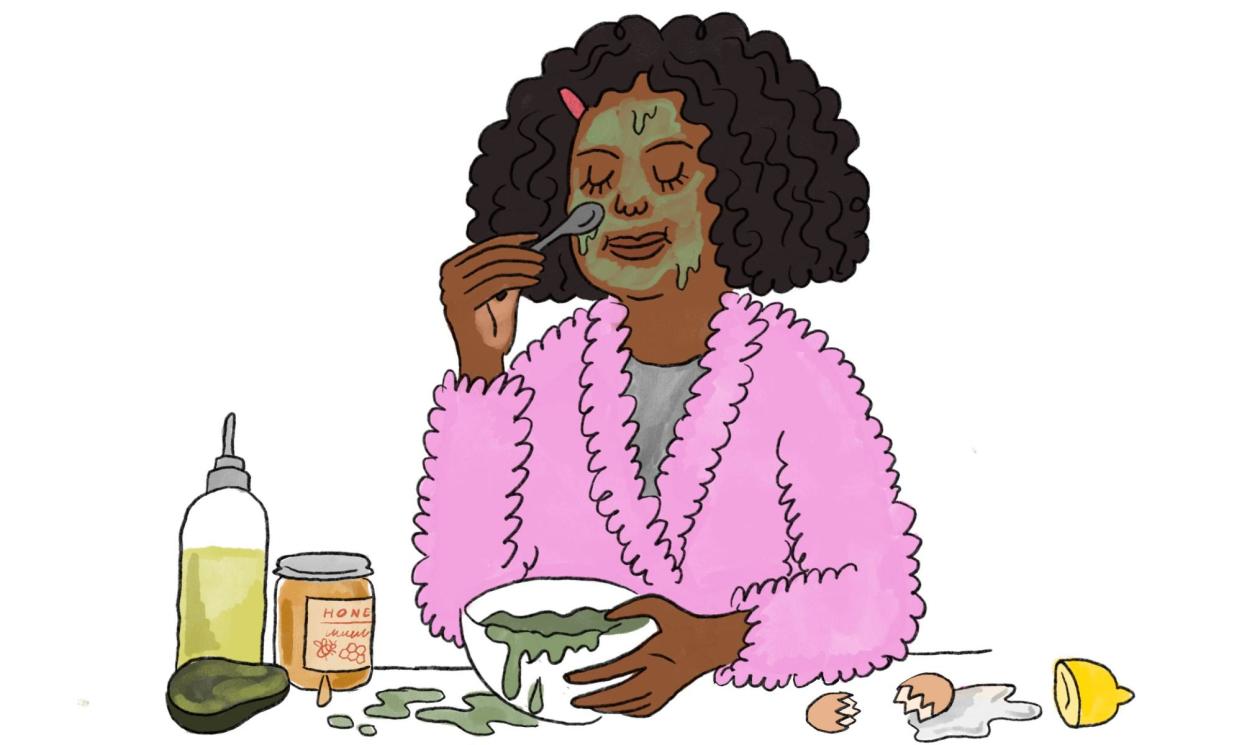Are DIY face masks as good as shop-bought ones?

We seem to have an obsession with DIY face masks; TikTok is awash with them. Maybe they’re a nostalgic reminder of childhood sleepovers and raiding the fridge for whatever you could find to make a natural face mask, complete with cucumber slices over the eyes. Or maybe it’s because they are cheaper than shop-bought masks. But whatever the reason, from an efficacy perspective it feels like using a twig to brush your teeth when there’s an electric toothbrush sitting in the bathroom cabinet.
Related: Can you create fake freckles with brow dye?
We think of these homemade concoctions as pretty harmless, but that’s not always the case. Anything with turmeric in it may stain your face. “Masks with lemon juice could burn your skin,” says Dr Anjali Mahto, consultant dermatologist and founder of Self London skin clinic. “The pots you put them in can also harbour bacteria because there aren’t any preservatives, so using a mask that’s been sitting in the fridge a couple of days could lead to skin infections.” skin clinic told me. Then there’s the “green washing” aspect. What’s better for the planet, crushing up an avocado that’s been flown 5,000 miles from Mexico for a face mask, or using a synthetically reproduced ingredient from a lab? I’d suggest it’s the latter.
An at-home facial with masks is a weekly ritual for me. I start with a chemical exfoliator, move to a clay-based mask, then finish with a soothing or moisture-based mask. And I have to say that no homemade mask I’ve tried – and I’ve tried hundreds – has been as effective as shop-bought ones. They needn’t be too dear either – I’m a fan of The Body Shop Himalayan Charcoal Purifying Clay Mask. It’s £20 and lasts a while.
Do you have a beauty question for Anita? Email beautyQandA@theguardian.com


